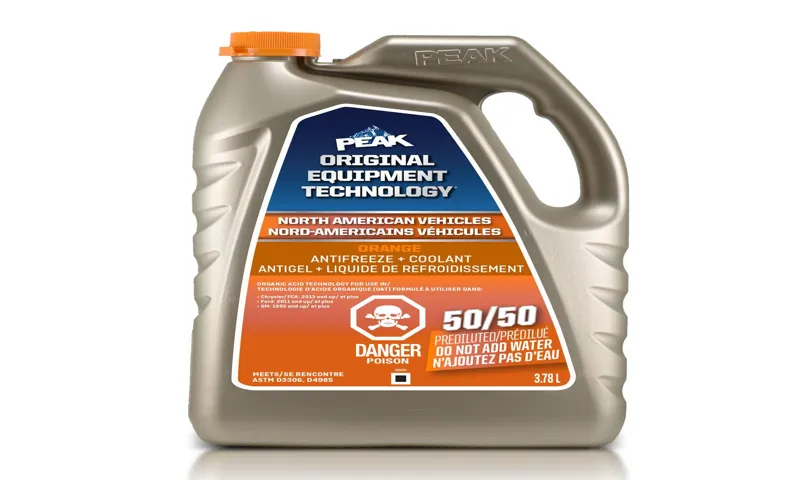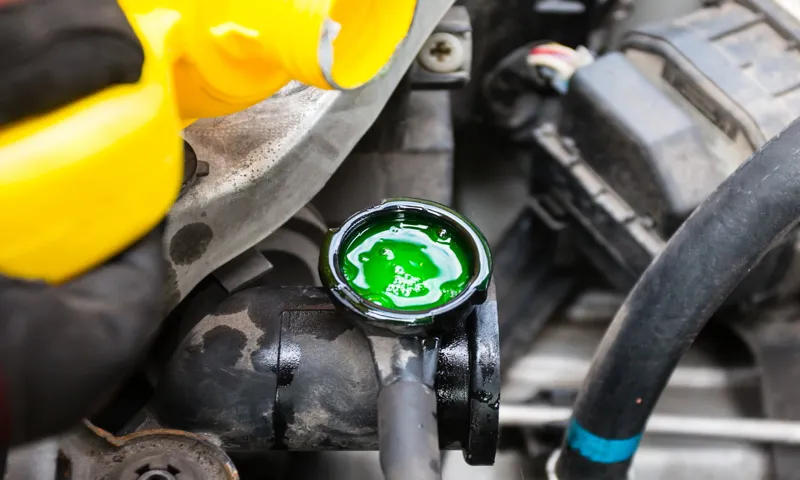If you own a car, you’ve probably heard the term “coolant” before. But do you really know what it is and why it’s important? Coolant, also known as antifreeze, plays a crucial role in keeping your engine running smoothly. Just like how our bodies need water to regulate temperature, your car’s engine needs coolant to prevent overheating.
But what exactly is coolant made of? Why is it important to use the right type of coolant for your vehicle? And what could happen if you ignore the importance of proper coolant maintenance? In this blog post, we’ll dive deeper into the world of coolant and its significance in maintaining your car’s health. So buckle up and let’s explore the ins and outs of coolant together!
Table of Contents
What is Coolant?
Are you wondering what coolant is for? Well, let’s break it down. Coolant is a liquid that is used in engines to regulate temperature and prevent overheating. Think of it as the body’s own sweat.
Just like how perspiration helps us stay cool, coolant does the same for engines. It circulates through the engine, absorbing heat and carrying it away. This keeps the engine running at the ideal temperature, which is crucial for its performance and longevity.
Coolant is typically a mixture of water and antifreeze, which helps to prevent freezing and boiling in extreme temperatures. So, next time you see that colorful liquid under your car’s hood or hear your mechanic mention coolant, you’ll know why it’s so important. It’s the engine’s way of staying cool under pressure.
Definition and Composition
Coolant is a crucial component in our vehicles that often goes unnoticed. But what exactly is coolant? Well, simply put, coolant is a liquid substance that helps regulate the temperature of the engine in order to prevent it from overheating. It circulates through the engine, absorbing heat and carrying it away to the radiator, where it is cooled down before being circulated back into the engine.
It’s like the engine’s very own cooling system! Think of coolant as the engine’s bodyguard, protecting it from the dangers of overheating. Without coolant, the engine would get so hot that it could cause serious damage, potentially leading to engine failure. It’s kind of like baking a cake without checking the temperature – you’re just asking for trouble! But coolant isn’t just water or any random liquid.
It is actually a carefully formulated mixture that typically consists of a base fluid, additives, and often water. The base fluid, usually either ethylene glycol or propylene glycol, acts as the primary ingredient that absorbs and carries away the heat. Additives are included to enhance the coolant’s performance and protect the engine against rust, corrosion, and cavitation.
Water is also added to improve the heat transfer capabilities of the coolant. So the next time you see that little reservoir under the hood of your car labeled “coolant,” remember its importance in keeping your engine running smoothly. It’s like the hidden hero that quietly saves the day, ensuring your engine stays cool and your car keeps moving.

Types of Coolant
“What is Coolant?” Coolant is a crucial component in a vehicle’s engine that helps prevent it from overheating. It plays a vital role in maintaining the proper temperature for the engine to function optimally and avoid any damage or breakdowns. Coolant is a liquid that circulates through the engine, absorbing heat as it flows and then releasing it through the radiator.
This constant process of heat transfer keeps the engine at a safe operating temperature. Without coolant, the engine would quickly overheat, which can lead to costly repairs or even engine failure. So, it’s important to regularly check and maintain the coolant levels in your vehicle to ensure its longevity and performance.
Why is Coolant Important?
Coolant is a vital component of any vehicle’s cooling system. It helps regulate the temperature of the engine, preventing it from overheating and ensuring it operates efficiently. But what is coolant exactly and why is it so important? Well, think of coolant as the engine’s personal air conditioner.
Just like an AC cools down a room on a hot day, coolant cools down the engine when it gets too hot. It does this by absorbing the excess heat generated by the engine and then dispersing it through the radiator. Without coolant, the engine would quickly overheat, leading to potential damage and even engine failure.
It’s important to regularly check and maintain the coolant levels in your vehicle to ensure your engine stays cool and performs at its best. So next time you think about skipping that coolant check, remember that it’s like skipping out on sunscreen on a scorching day – it may seem like a small thing, but it can have big consequences in the long run.
Cooling the Engine
coolant, cooling system, engine temperature, overheating, heat transfer, radiator, water pump, antifreeze
Preventing Overheating
Coolant is an essential component of any vehicle’s engine cooling system. It plays a crucial role in preventing overheating and maintaining optimal engine temperature. Without proper coolant, the engine can quickly overheat, leading to serious damage and potentially expensive repairs.
But why is coolant so important in the first place? Well, think of it as the engine’s very own heating and cooling system. Just like a house needs a furnace to stay warm in the winter and an air conditioner to stay cool in the summer, an engine needs coolant to regulate its temperature. Without coolant, the engine would quickly reach extreme temperatures, causing the metal components to expand and potentially seize, leading to engine failure.
So, in essence, coolant is like the engine’s lifeline, keeping it cool and preventing a meltdown. Taking care of your coolant by regularly checking its level and quality is crucial in maintaining your vehicle’s health and preventing overheating issues. So, make sure to keep an eye on your coolant levels and top it up if necessary.
Your engine will thank you!
Protecting Against Freezing
coolant, freezing, protection
How and When to Use Coolant
Coolant is a vital component of a vehicle’s engine system, as it helps to regulate the temperature and prevent overheating. But what exactly is coolant for? Well, coolant, also known as antifreeze, is a liquid that is mixed with water and added to the radiator of a car. Its main function is to absorb heat from the engine and dissipate it into the air, thus preventing the engine from getting too hot.
This is particularly important in hot climates or during long periods of driving, as heat can build up quickly and cause damage to the engine. In addition to its heat-dissipating properties, coolant also serves as a corrosion inhibitor, preventing rust and other forms of damage from occurring within the engine. So, when should you use coolant? It is recommended to use coolant during regular maintenance, such as when flushing the radiator or replacing old coolant.
It is also important to top up the coolant if the level is low, as this can indicate a leak in the system. Overall, coolant is a crucial component in keeping your engine running smoothly and avoiding expensive repairs.
Mixing Ratios
coolant, mixing ratios, use coolant, coolant in engines, coolant for vehicles Paragraph: When it comes to maintaining your vehicle’s engine, one important aspect to consider is the use of coolant. Coolant, also known as antifreeze, plays a critical role in regulating the temperature of your engine and preventing overheating. But how do you know when and how to use coolant? The first thing you need to understand is the mixing ratio.
This ratio refers to the amount of coolant to be mixed with water. For most vehicles, a 50:50 ratio of coolant to water is recommended. This ensures that the coolant has the right balance of chemicals to provide adequate protection against freezing in colder temperatures and boiling in hotter temperatures.
While it may be tempting to use pure coolant, it is important to mix it with water as this allows for better heat transfer and prevents the coolant from becoming too concentrated. Additionally, using a higher ratio of coolant to water can actually reduce the effectiveness of the coolant and cause damage to the engine. So, next time you need to fill up your vehicle’s coolant, be sure to follow the recommended mixing ratios to keep your engine running smoothly.
Checking Coolant Levels
coolant levels, use coolant
Replacing Coolant
coolant, replacing coolant
Conclusion
In conclusion, coolant is like the superhero of your vehicle’s engine, swooping in to save the day and save your engine from overheating. But it’s no ordinary superhero – it’s a multitasking, super cool substance, keeping your engine at the perfect temperature, preventing corrosion, and even providing a little extra oomph to your heating system. So next time you hear someone ask, “What is coolant for?” you can confidently respond, “It’s the secret weapon that keeps your engine chill and your ride running smoothly!” And, hey, if a substance can be that cool, maybe it’s time we all take a page out of coolant’s book and embrace our own inner coolness too.
After all, who wouldn’t want to be as cool as coolant?”
FAQs
What is coolant for?
Coolant is a liquid or gas used to maintain or lower the temperature in various systems, such as engines, refrigerators, air conditioning units, and industrial processes. It helps prevent overheating and ensures optimal performance and efficiency.
How does coolant work in a car’s engine?
In a car’s engine, coolant is circulated through the engine block and cylinder head to absorb heat from the combustion process. It then carries the heat to the radiator where it is transferred to the surrounding air. This continuous cycle helps regulate the engine temperature and prevents it from overheating.
What types of coolant are there for cars?
There are primarily two types of coolant used in cars: traditional green coolant (ethylene glycol-based) and red/orange extended-life coolant (propylene glycol-based). Both types contain additives to prevent corrosion, lubricate the water pump, and provide anti-freeze protection.
How often should coolant be changed in a car?
The frequency of coolant changes depends on the type of coolant and the manufacturer’s recommendations. Generally, it is recommended to change the coolant every 2-5 years or every 30,000-100,000 miles, depending on the specific coolant and driving conditions.
Can I mix different types of coolant in my car?
It is generally not recommended to mix different types of coolant as they may have different formulations and additives. Mixing coolants can lead to chemical reactions, reduced effectiveness, and potential damage to the cooling system. It is best to consult the car’s manual or a professional for guidance.
What are the signs of coolant problems in a car?
Common signs of coolant problems include overheating, coolant leaks, low coolant levels, engine misfires, a sweet or strong odor inside the car, white exhaust smoke, or a dashboard warning light. If you notice any of these signs, it is important to have the cooling system inspected and repaired promptly.
Can I use water instead of coolant in my car’s cooling system?
In emergencies, water can be used as a temporary solution to top up the cooling system. However, water alone is not recommended for extended use as it does not provide the same corrosion protection and anti-freeze properties as coolant. It is best to use a proper coolant mixture for optimal performance and protection.


